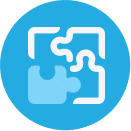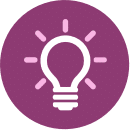GCDD encourages integrated social activities for individuals with intellectual and developmental disabilities. Actively pursuing hobbies or interests contributes to elevated self-esteem, enhanced positive behaviour, improved social competence, improved school or work attendance, and greater aspirations in life. These experiences also serve to build relationships between individuals with intellectual and developmental disabilities and others, setting an expectation that persons with disabilities can exceed their perceived limitations and contribute to society.
What is Disability Inclusion?
Including people with disabilities in everyday activities and encouraging them to have roles like their peers who do not have a disability is disability inclusion. This involves more than simply encouraging people; it requires making sure that adequate accessibility policies and practices are in effect in a community or organization.
Inclusion should lead to increased participation in socially expected life roles and activities—such as being a student, worker, friend, community member, church member, patient, spouse, partner, parent, or a volunteer.
Socially expected activities may also include engaging in social activities, using public resources such as transportation and libraries, moving about within communities, receiving adequate health care, having relationships, and enjoying other day-to-day activities.
Why is Inclusion Important?
Chances are, disability does or will affect you – through personal diagnosis or that of a family member, friend or neighbor. Disability affects approximate 61 million, or nearly 1 in 4 (26%) people in the United States living in communities. Most of us will acquire a disability in our lifetime. So, advocate for inclusion in your community and be an ally to those who have intellectual and developmental disabilities and their families!
Check out our Links page.
Photo Credit: Julie Mayberry, I CAN! of Arkansas Founder



